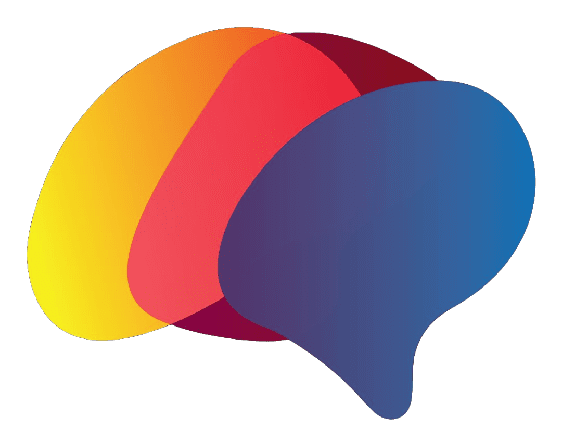Aphasia speech therapy in Dubai
Aphasia is a language disorder that affects speaking, understanding, reading, and writing. Usually, it happens after a stroke or brain injury. Although intelligence remains intact, communication becomes challenging. Therefore, early diagnosis and therapy are critical.
Causes and Risk Factors
Aphasia most often results from stroke. However, brain tumors, injuries, or neurological conditions can also lead to aphasia. Additionally, factors such as high blood pressure, smoking, and age increase the risk of stroke. Thus, maintaining a healthy lifestyle can reduce the chances of developing aphasia.
Types of Aphasia
It is important to recognize the different types of aphasia:
-
Broca’s Aphasia: Difficulty forming sentences but good understanding of spoken language.
-
Wernicke’s Aphasia: Fluent speech that often lacks meaning, with poor comprehension.
-
Global Aphasia: Severe challenges with both speaking and understanding.
-
Anomic Aphasia: Trouble finding the right words, though speech remains fluent otherwise.
By identifying the type of aphasia, therapists can create personalized treatment plans that target each patient’s needs.
Challenges People with Aphasia Face
Living with aphasia is not easy. Many patients feel isolated because they struggle to communicate. Furthermore, they may avoid conversations out of fear of making mistakes. This often leads to frustration, depression, and reduced confidence. Nevertheless, with the right support, patients can improve communication and reconnect with family and friends.
Why Early Therapy is Important
Starting therapy early leads to better results. Research shows that patients who begin aphasia speech therapy in Dubai soon after diagnosis improve faster. Moreover, early therapy helps reduce stress and strengthens social relationships. In other words, timely intervention builds confidence and restores hope.
How Aphasia Speech Therapy in Dubai Helps
Dr. Azizreza Ghasemzadeh offers comprehensive aphasia speech therapy in Dubai. His therapy programs include:
-
Language Exercises: Practice naming objects, forming sentences, and using correct grammar.
-
Reading and Writing Support: Build literacy skills gradually.
-
Alternative Communication Strategies: Learn gestures, drawing, or using devices to aid communication.
-
Family Education: Train loved ones to support progress at home and encourage daily practice.
In addition, therapy focuses on achievable goals. This approach motivates patients and ensures steady improvement.
Combining Therapy with Emotional Support
Aphasia recovery takes time. Therefore, emotional support is crucial. Patients often need encouragement to stay positive and consistent in therapy. Group sessions, social activities, and celebrating small successes help build confidence and reduce anxiety. Furthermore, psychological counseling can support mental health during recovery.
Integrating Other Therapies
Aphasia speech therapy is more effective when combined with:
-
Occupational Therapy: Teaches skills for daily living and promotes independence.
-
Physical Therapy: Improves mobility, balance, and strength.
-
Cognitive Therapy: Supports attention, memory, and problem-solving skills.
This multidisciplinary approach provides a well-rounded path to recovery and improves overall quality of life.
Tips for Communicating with Someone Who Has Aphasia
Supporting someone with aphasia requires patience. Remember to:
-
Use simple words and short sentences.
-
Speak slowly and clearly.
-
Give them extra time to respond.
-
Avoid interrupting or finishing their sentences.
-
Encourage them to use gestures or drawings to express themselves.
These strategies improve communication and reduce frustration for both patients and caregivers.
If you are looking for specialized aphasia speech therapy in Dubai, Dr. Azizreza Ghasemzadeh provides evidence-based assessment and treatment with over 20 years of clinical experience supporting adults with post-stroke or neurological communication challenges. Many clients search for terms such as “speech therapy Dubai near me,” “speech therapy Dubai cost,” “speech therapy for adults,” and rehabilitation services in areas like Sharjah. Our therapy programs focus on improving language comprehension, expression, reading, writing, cognitive–communication skills, and functional daily communication. If you or your loved one is experiencing aphasia and needs expert therapeutic support, feel free to contact us for professional evaluation and individualized treatment planning.
Get Help Today
If you or a loved one needs aphasia speech therapy in Dubai, contact Dr. Azizreza Ghasemzadeh now. With more than 20 years of experience, he provides compassionate care that helps patients rebuild language skills and regain confidence. Don’t wait—early therapy makes a significant difference.
Dr. Azizreza Ghasemzadeh
Speech Therapist & Psychologist, Dubai
WhatsApp: +971 55 560 0641
Instagram: @dr.aziz.ae
Website: www.speechtherapy.ae
Related Topics
- Childhood Stuttering in Dubai
- Bilingual Speech Delay in Dubai
- Developmental Language Disorder (DLD)
- Hearing Loss and Speech Therapy in Dubai
- ADHD and Speech Therapy in Dubai – Dr. Aziz
- Speech Therapy for Learning Disability in Dubai
- Autism Therapy in Dubai
- Delayed Speech and Language in Dubai
- Articulation Disorder in Dubai
- Specific Language Impairment (SLI) in Dubai
- Cerebral Palsy and Speech Therapy in Dubai
- Group Therapy for Stuttering in Dubai
- Voice Disorders and Therapy in Dubai
- Sensory Integration and Autism in Dubai
Selected Published Articles by Dr. Azizreza Ghasemzadeh
You may refer to the following peer-reviewed articles authored by Dr. Ghasemzadeh et al., to explore further research in clinical psychology, cognitive therapy, speech disorders, and neurological rehabilitation:
- Cognitive Mastery in Sports
- CBT on Dysmenorrhea in Iranian Girls
- Psychosomatic Manifestations in Speech Disorders
- Cultural Considerations in Autism
- Life Enrichment for Women with MS
- Parentification in Girls from Single-Parent Families
- Postpartum Depression and Mindfulness
- Fatigue in ALS Patients
- Cognitive-Behavioral Therapy on Reducing the Depression As a Dysmenorrhea Symptom
- Group Cognitive Behavioral Therapy in Treating Obsessive-Compulsive Disorder


